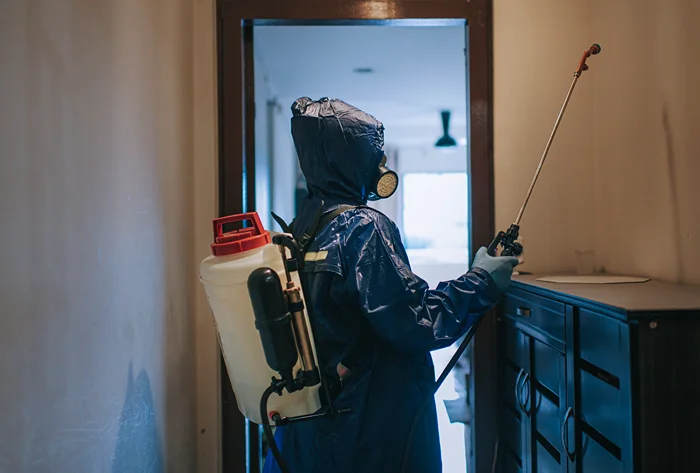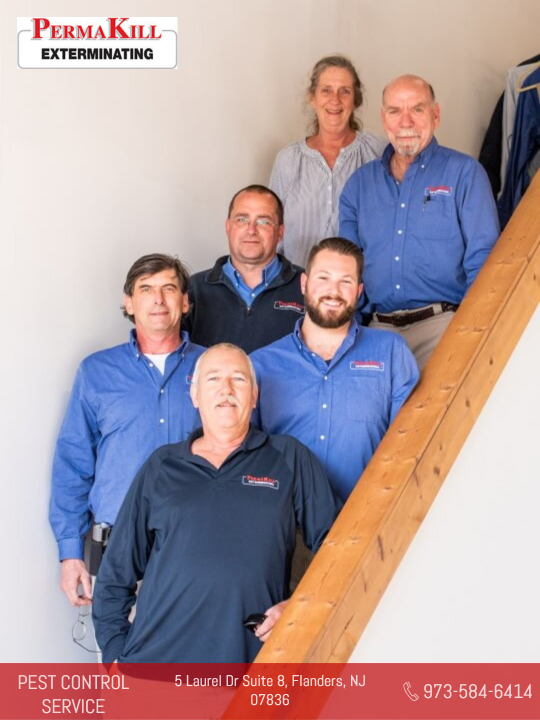


Formosan subterranean termites are invasive species of termites that live underground. They’re widespread across the United States and they bring with them many risks and dangers as they consume wood in their path. However, some people are concerned about the other dangers that they might bring, such as sicknesses and diseases.
So do Formosan subterranean termites carry diseases with them? Fortunately, Formosan subterranean termites don’t cause direct harm to humans because they don’t spread diseases. However, there are other known dangers that come with having a termite infestation in your homes, such as compromised structural integrity of your home, unsanitary conditions that may lead to other complications, allergic reactions, and asthma attacks.
Most individuals are concerned about termite infestations because they are concerned about the termite damage to their homes, but sometimes it’s not just property that’s affected by termites. While termites don’t represent a direct threat to humans, they can have negative consequences on human health.
Although researchers have found out that Formosan termites have different types of bacteria on their bodies, they have found that they don’t transmit these to human beings. Formosan termites on their own don’t spread disease. They’re not known to directly harm human beings as they don’t carry with them diseases.
Instead, there are other ways where termite infestations can harm you. In some cases, they can still pose a threat to your health.
Formosan subterranean termites are still known to indirectly cause harm to humans, because of their wood-consuming activities. Some of these include causing dangerous structural damage to homes, unsanitary conditions within homes that allow for other bacteria to grow on surfaces, allergic reactions to their bites, and asthma attacks among affected people.
If left untreated, termites have the ability to damage homes more than you may think. Termite damage is an estimated 600,000 homes in the United States each year, and termite extermination and home repair cost a whopping $5 billion every year.
Damages to walls, ceilings, staircases, and other structures in your homes could pose a potential risk of harm for you. A lot of these surfaces may look normal on the outside, but are actually incredibly damaged on the inside. Compromised walls and ceilings can collapse if left untreated for years of termite consumption. Staircases may break and cause anyone stepping on them to fall which may result in injury.
In addition, termites can also indirectly interfere with the electrical wiring within the ceiling. This may result in damage which can cause sparks and short circuits that lead to a fire.
Termite activity can cause unsanitary conditions in numerous areas of your home. This can cause a chain reaction of events that can lead to more growth of harmful bacteria on different surfaces of your home. Wood deteriorates as a result of termites consuming them and this makes it more susceptible to mold formation. Mold can cause allergies or other health problems for you and your family if it grows on the walls, ceiling, or in the attic of your home.
The presence of termites can also be a symptom of a hidden moisture problem since mold and termites grow in the same dark, damp environment, which can lead to other health issues. Fungal infections, skin problems, and mild to severe asthma can all be caused by mold.
Wooden buildings deteriorate as a result of their feeding activities, and the decomposing wood is susceptible to mold formation. Mold and other bacteria grow in the presence of moisture, contributing to air pollution. This could be the cause of termites in the walls or ceilings, resulting in the discharge of a foul odor that will have a negative impact on the environment.
Some people can develop allergies to termites. Skin irritation as a result of termite bites can happen to people with particularly sensitive skin or compromised immune systems.
People with existing health conditions like asthma and sensitivity, or allergy to mold are at risk of the conditions brought by termites. Termites consuming wood leave a lot of residue of microscopic wood particles that when inhaled can lead to triggering asthma attacks or allergic reactions.
Another result of mold formation can be the spread of fungi and bacteria into the air, eventually landing in your food. When ingested, these can cause different types of health problems.
There are some telltale signs of termite infestations to look out for. Some of these include:
If one or more of these can be seen at your home, it may be best to take some action immediately.
In order to keep your home free of a termite colony, you must investigate and follow up on any potential symptoms of a termite infestation that you may notice. This requires regularly inspecting your home's exterior foundation, basement, attic, and any crawlspaces you may have.
Apart from this, remove any and all soil-wood contact. Earth-to-wood contact benefits termites because it supplies them with readily available food, moisture, and shelter. Doors, window frames, and other possible entryways should be at least 6 inches above ground level.
You must also remove any debris or clutter. Infestations of termites are more common in homes that store woodpiles. Termites are attracted to a variety of materials, including firewood, lumber, carton material, and newspaper. Termites will no longer have access to food supplies if these piles are removed.
No moisture should be allowed to collect anywhere in the house. Make sure any outside fountains, ponds, or faucets aren’t leaking and are properly covered. Repair any existing leaks and check to see if the soil in the area is holding moisture.
There are a lot of termite infestation remediation methods. Some of the more popular ones are soil treatment methods, wood treatment methods, or bait control systems.
Soil treatments mostly target termite nests since they directly affect the pests' habitat. Soil treatment is one of the most effective termite control treatments since most invasive termites dwell in the soil. A concentrated and precise dose of termiticide barrier is sprayed on the exterior of your property by professional pest control services. When termites come into touch with this barrier, the chemical kills them.
Wood treatment addresses the termites' food source. This method can be used to treat specific items like furniture, walls, or other surfaces. The wood will be treated with termiticides that are poisonous to termites if eaten. It’s suggested that you treat the woods in your home while they are being constructed.
Bait control systems target termites' habitat as well as their food sources. Professional pest control services utilize systematic approaches like these. They utilize a combination of chemicals in certain sections of your home, such as termiticides, borate solutions, and other chemicals. These experts can select the optimal locations for termites to come into contact with the bait and return the harmful chemicals to their nests.
Professional exterminating services may make use of one or more of the aforementioned methods of termite treatment. They have a variety of powerful and effective chemicals, solutions, and termiticides that can permanently solve your termite infestation problems. Consulting and availing of their services are greatly recommended.

Formosan subterranean termites, on their own, don’t transmit diseases to human beings. Although they don’t spread harmful diseases, their presence can spell danger for humans. Their activities can cause alarming side effects that can be detrimental to the health of the house’s inhabitants.
Professional pest control service providers such as PermaKill Exterminating offer expert services to effectively prevent termite infestations and rid your home of termites for good. Get in touch with PermaKill Exterminating now through our number (973)-584-6414 or by visiting our website to know more about us.